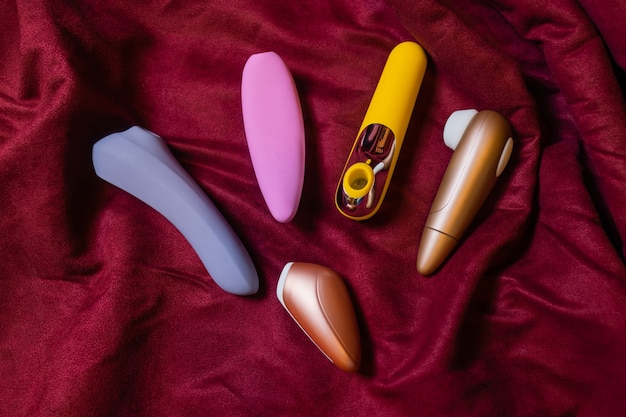The year 2013 marked a significant moment in the realm of futurism when a bold prediction about the future of human sexuality was made. A prominent futurologist forecasted a radical shift in intimate relationships, suggesting that by 2050, human-robot sexual interactions would surpass those between humans. This audacious claim sparked widespread debate and curiosity about the potential for technology to revolutionise our most personal experiences.
The Bold Prediction: A Technological Revolution in Intimacy
The futurologist’s forecast painted a vivid picture of a world where advanced humanoid robots would become preferred sexual partners for many individuals. The timeline proposed a gradual integration of robotic companions into society, with key milestones expected between 2025 and 2050.
According to this prediction, by 2025, we would witness the emergence of sophisticated sex robots capable of rudimentary conversation and basic emotional responses. By 2035, these robots were expected to possess advanced artificial intelligence, enabling them to engage in complex dialogues and form seemingly genuine emotional connections. The ultimate vision for 2050 involved robots that were nearly indistinguishable from humans in terms of their physical and emotional capabilities.
Several factors were cited as driving forces behind this anticipated shift. These included rapid advancements in artificial intelligence, robotics, and materials science. Additionally, changing societal attitudes towards sexuality and relationships were expected to play a crucial role in the acceptance and adoption of robotic partners.
The Current State of Affairs: How Reality Measures Up
As we approach the midpoint between the prediction and its projected fulfilment, it’s worth examining the current state of sex robot technology and its adoption. While progress has been made, the reality falls short of the ambitious timeline proposed a decade ago.
Existing sex robots are primarily silicone dolls with limited animatronic features and basic voice interaction capabilities. They lack the sophisticated AI and emotional simulation envisioned in the original prediction. The most advanced models on the market can perform simple movements and respond to voice commands, but they are far from the lifelike, emotionally intelligent companions that were anticipated.
Market demand for these robots remains niche, with high costs and social stigma limiting widespread adoption. The comparison between the current state and the original prediction reveals a significant gap, highlighting the challenges in accurately forecasting technological progress and societal change.
Technological Advancements Shaping the Future of Intimacy
Despite the discrepancy between prediction and reality, ongoing technological advancements are steadily shaping the future of intimacy. Artificial intelligence is making strides in natural language processing and emotional recognition, which could eventually lead to more convincing and engaging robotic companions.
Virtual reality and augmented reality technologies are opening new avenues for immersive intimate experiences. These technologies have the potential to bridge the gap between physical and digital intimacy, offering novel ways to connect across distances.
Haptic feedback and sensory enhancement technologies are also progressing, with researchers working on creating more realistic touch sensations and even simulating scents and tastes. These advancements could significantly enhance the realism of interactions with artificial partners.
The Gender Dimension: Why Women Might Embrace Robotic Partners
An interesting aspect of the original prediction was the suggestion that women might be more likely to embrace robotic partners than men. This notion challenges traditional assumptions about gender and technology adoption.
Several factors could influence female preferences for robotic partners. These might include the potential for increased safety and control in intimate encounters, the ability to explore desires without judgment, and the promise of consistent emotional and physical satisfaction.
Potential benefits for women’s sexual satisfaction include the ability to customise experiences to individual preferences and the opportunity to engage in intimate activities without the complexities of human relationships. However, societal attitudes and stigma surrounding women’s sexuality and the use of sex toys remain significant barriers to widespread adoption.
The Emotional Landscape: Beyond Physical Gratification
As we consider the future of human-robot relationships, it’s crucial to look beyond physical aspects and examine the potential for emotional connections. The development of emotionally intelligent AI could lead to robots capable of providing companionship and emotional support.
The impact of such relationships on mental health and well-being is a subject of ongoing debate. While some argue that robotic companions could alleviate loneliness and provide consistent emotional support, others worry about the potential for addiction and the erosion of human-to-human connections.
Ethical considerations abound in this area. Questions arise about the nature of consent in human-robot relationships, the potential for emotional manipulation, and the implications of forming deep attachments to non-sentient beings.
Societal Implications and Concerns
The potential widespread adoption of sex robots raises numerous societal concerns. Critics argue that these technologies could reinforce harmful power imbalances and objectification, particularly if robots are designed to be subservient or to embody unrealistic physical ideals.
The impact on human relationships and social dynamics is another area of concern. Some worry that the availability of ‘perfect’ robotic partners could lead to decreased motivation to form and maintain human relationships, potentially exacerbating social isolation.
Legal and regulatory challenges are also on the horizon. Policymakers will need to grapple with issues such as the legal status of human-robot relationships, privacy concerns related to data collected by intimate robots, and the potential for these technologies to be used in harmful or abusive ways.
The Road Ahead: Adjusting Expectations
As we reassess the timeline for widespread adoption of sex robots, it’s clear that the original prediction was overly optimistic. While technological progress continues, the complexities of human emotions and relationships present significant hurdles to the creation of truly satisfying robotic partners.
Moving forward, it’s crucial to balance technological progress with human needs. This involves not only advancing the technical capabilities of robots but also considering the psychological and emotional aspects of intimacy.
The future of intimacy is likely to involve a blend of human and artificial elements. Virtual and augmented reality technologies may play a larger role in intimate experiences, while advances in AI could lead to more sophisticated digital companions. However, the unique qualities of human connection are likely to remain irreplaceable for many.
Navigating the Changing Landscape of Human Sexuality
The bold prediction made in 2013 serves as a valuable lesson in the challenges of forecasting technological and societal change. While it may have overestimated the pace of progress, it has sparked important conversations about the future of human sexuality and relationships.
As we continue to develop these technologies, ethical considerations must remain at the forefront. This includes addressing issues of consent, privacy, and the potential impact on human relationships and social structures.
Ultimately, while technology will undoubtedly continue to influence and shape our intimate experiences, the enduring value of human connection in the digital age should not be underestimated. The future of human sexuality is likely to be a complex interplay of technological innovation and timeless human needs for love, connection, and understanding.



